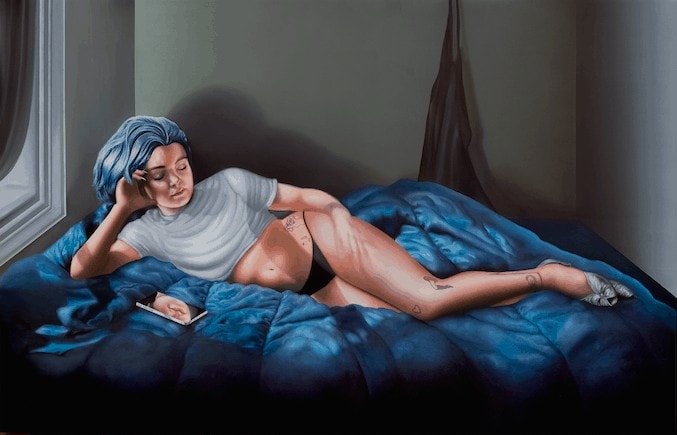Spending her formative years in the northwest Catskills area of New York state, artist Alannah Farrell utilized the enigmatic strangeness, poverty, and pervasive desolation of this rural locale to influence her aesthetic, particularly color.
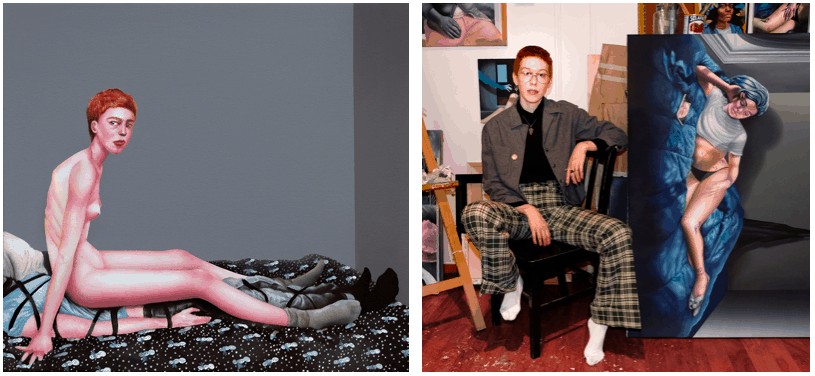
Moving to the East Village as a teen–a completely opposite landscape–she became fascinated by the nightlife scenes, its dualistic nature, a kind of hide-and-seek, where one can simultaneously lose themselves while finding solace amongst like-minded misfits. Her paintings include representational depictions of real people rendered in her own ‘faux-realism’ style. These painted figures are often left in grisaille or muted limited palettes. Narrative elements are accentuated through visual cues in the form of ordinary objects; everyday clothing, furniture, household items, electronics, wallpaper, lighting slightly askew or emphasized in a different color. There is nothing grandiose about the settings in which these figures live. Their humble surroundings speak of life as a lower class American.
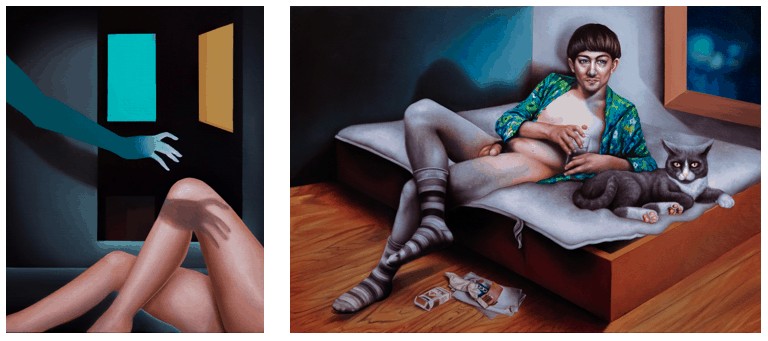
Her upcoming show at New York's The Painting Center, titled Worlds Without Rooms features over a dozen paintings of the artist's close-knit community of friends in their interior spaces. Each painting illustrates personal struggles and victories for the sitters. Some are undoubtedly connected to the careers that are a source of income for them and therefore their security lies in these spaces. Many are working in creative fields, or odd jobs to make ends meet. Although their worlds are personal to them, Farrell introduces us to them intimately, either in imagined or actual spaces.
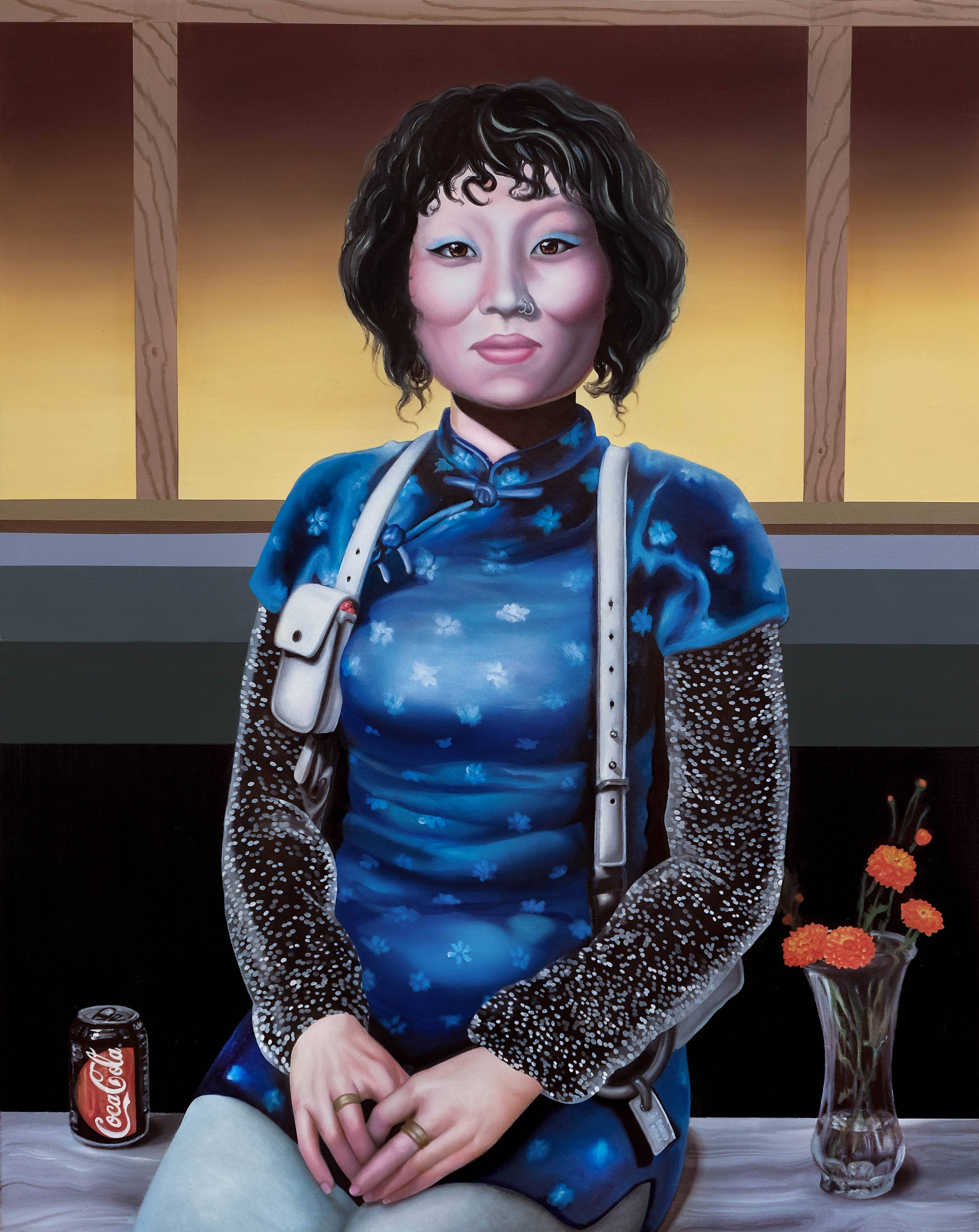
Sanctuary (Magdalena) (2019) depicts Farrell's friend, an East Village native. Since a very young age, she has been financially independent as rising rents pushed her immigrant family out of her childhood home. She is reclining on the bed in her actual room, which she affords on her own in a small apartment with roommates. Light peers through the window, extending a shadow over her reclining figure. She looks down, away from the viewer, but is vulnerable in her state of undress. She is wearing a crop-top tee shirt and panties, and a pair of vintage sandals. Her dyed blue hair is accented by cobalt blue bedding. A sign of her personal economic victory is the iPhone placed on her bed, reflecting her likeness. She is in a state between sleep and wakefulness. To Farrell, this invokes the terror of sleep paralysis that haunts her sitter just like it does the artist. It is a sign of stress in a world where income is perceived as proportional to security and abundance.
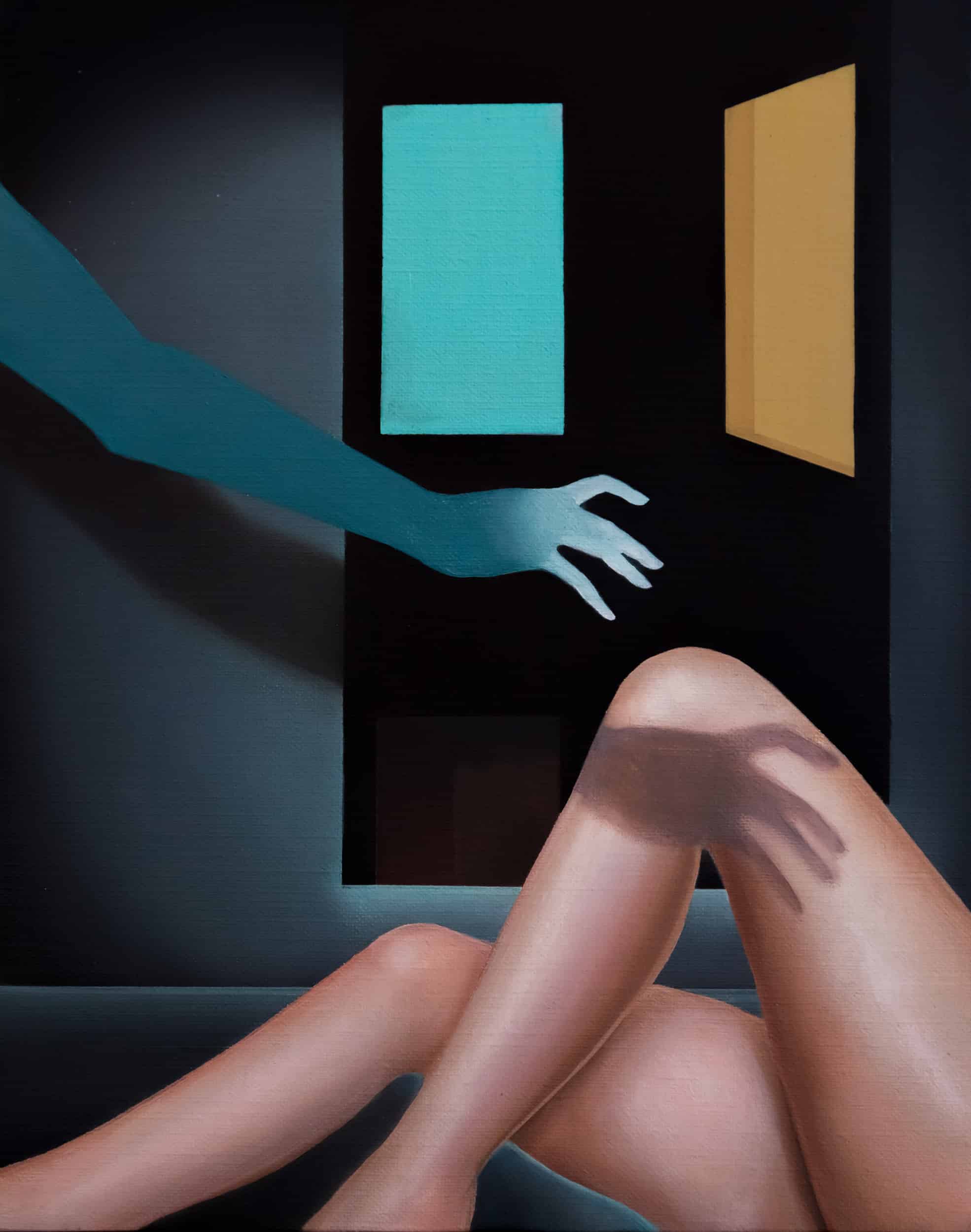
Backpage/Black Stocking (2019) is a painting of Farrell's friend in an imagined motel room. The sitter is a visual artist and professional dominatrix, and here she is, on an out call. The buxom blonde appears both empowered and reflective between her nudity and visage. She alludes to her power by gazing past the viewer as she pulls up her black stockings. Again, a shadow extends over the sitter, invoked by the light entering in from the window. This treatment of light is an example of Farrell's technical prowess, something she borrows from Old Master painters and dilutes. Farrell tempts the viewer by portraying the room in color and the sitter in grisaille with the faintest hints of reflective color, further accented by the deep turquoise chair she is sitting in. Just like in the paintings in many motel rooms, this one is framed in a gaudy gold frame. The frame is found and has an archaic six-digit phone number on the verso, alluding to back-page ads for sex workers highlighting their phone numbers.
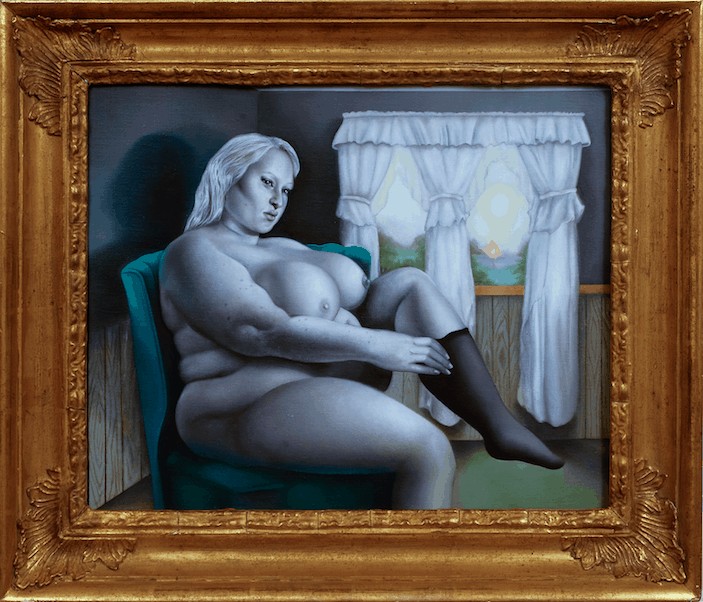
The Painting Center presents Worlds Without Rooms, the first solo exhibition for New York-based artist Alannah Farrell. Please join a reception for the artist Thursday March 28th, 6-8PM at The Painting Center, 547 West 27th Street, Suite 500 (5th Floor), New York.
This post was created with our nice and easy submission form. Create your post!




